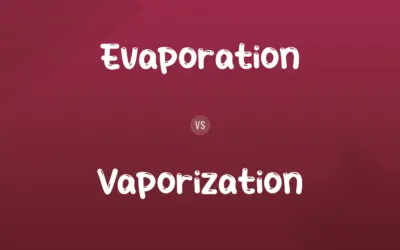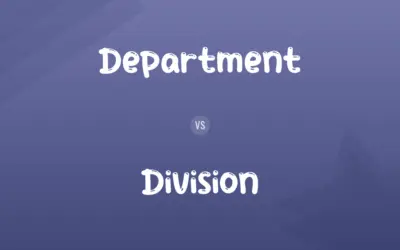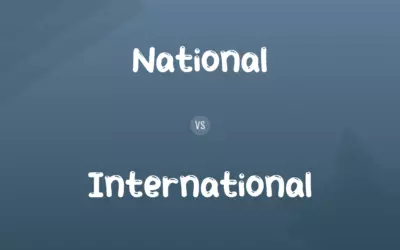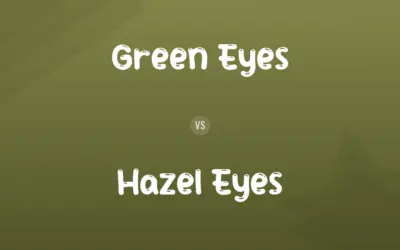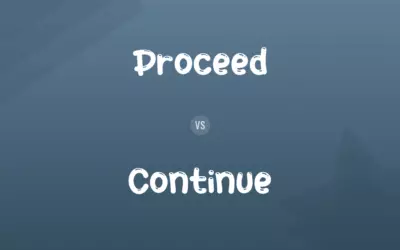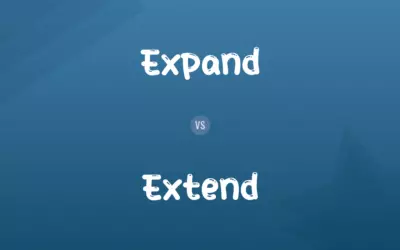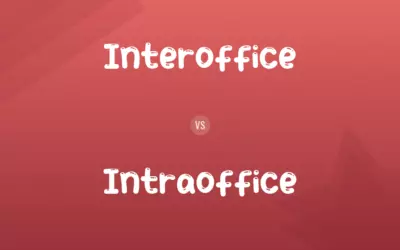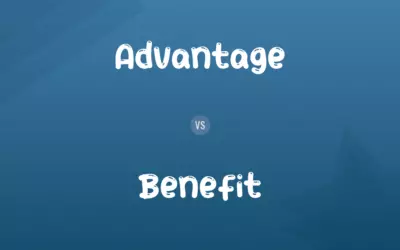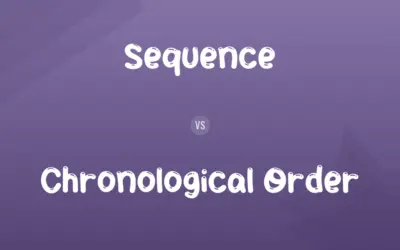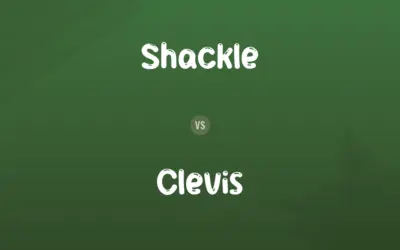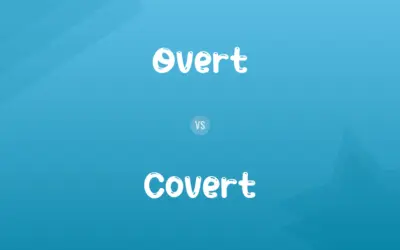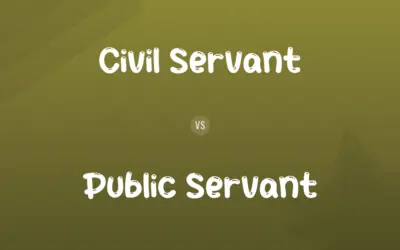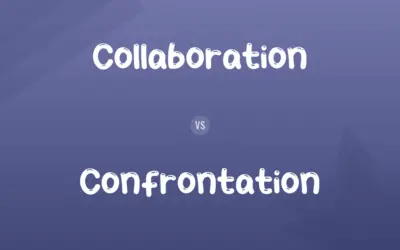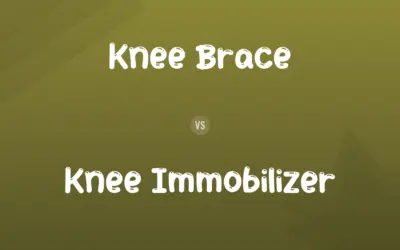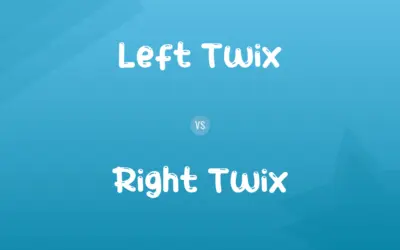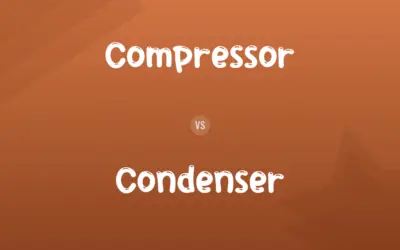Afterward vs. Afterwards: Difference and Comparison
Edited by Muazma Batool — By Muneeza Rehman — Updated on October 6, 2023
Afterward and afterwards both mean "at a later time," with "afterwards" being more common in British English and "afterward" in American English.
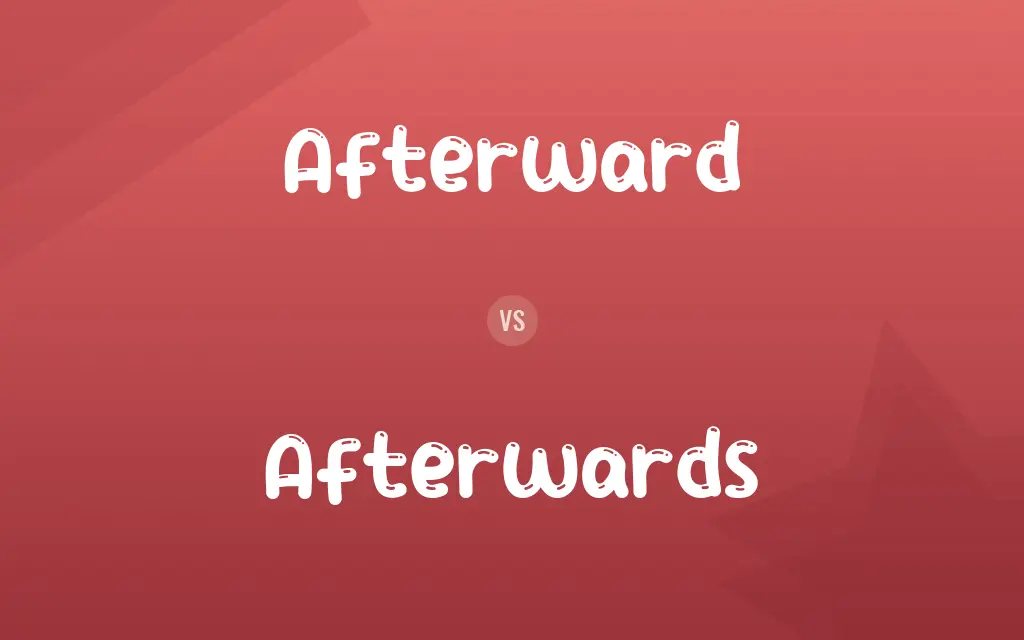
Difference Between Afterward and Afterwards
Afterward and afterwards are often used interchangeably, with both words referring to an event or time that follows a previous event or time. In many contexts, the two are synonymous, simply denoting what comes later. While "afterward" tends to be preferred in American English, "afterwards" finds more frequent usage in British English. The distinction is largely a matter of regional preference, not one of nuance or emphasis. For many writers and speakers, the choice between them comes down to rhythm or personal habit. No matter which word one chooses, the intent remains the same, to convey a sense of subsequent timing or events.
Muneeza Rehman
Oct 04, 2023
Though the difference is slight, some purists might argue that "afterward" is an adverb that describes when something happened, while "afterwards" serves as a transitional word, connecting two events in time. However, in everyday speech and writing, this subtle distinction rarely comes into play. Both words fit comfortably at the end of a sentence or can be used to open a new thought. Whether one says "The party was fun. I went home afterward" or "The party was fun. Afterwards, I went home," the meaning remains consistent.
Muazma Batool
Oct 04, 2023
In literature and other written works, authors might opt for one over the other based on sound, flow, or tradition. For instance, older texts might feature "afterwards" more prominently, as it was the more common form historically. But as language evolves, so do its commonly accepted forms, and the rise of "afterward" in American literature can be linked to evolving linguistic preferences over time.
Muneeza Rehman
Oct 04, 2023
In conclusion, while "afterward" and "afterwards" might have minute differences in certain contexts, they can be used almost interchangeably without causing confusion. It is the speaker's or writer's preference that often determines which word is selected.
Nolan
Oct 04, 2023
Afterward vs. Afterwards Comparison Chart
Usage in Sentences
Can be used at the end or beginning
Commonly used at the end or beginning
Muneeza Rehman
Oct 04, 2023
Afterward vs. Afterwards Definitions
◉Afterward
At a subsequent time.
We decided to visit the museum and went to the park afterward.
William
Sep 25, 2023
◉Afterwards
As a later consequence or result.
They realized the mistake only long afterwards.
Olivia
Sep 25, 2023
◉Afterwards
In the time that follows immediately.
The rain stopped, and soon afterwards the sun shone brightly.
Leo
Sep 25, 2023
◉Afterward
Subsequent to a particular event or time.
After the lecture, she spoke to the audience afterward.
Muneeza Rehman
Sep 25, 2023
◉Afterwards
At a later or future time.
We had lunch and went for a walk afterwards.
Muazma Batool
Sep 25, 2023
◉Afterward
Occurring later or in succession.
The event was postponed and held two weeks afterward.
Muazma Batool
Sep 25, 2023
◉Afterwards
Following an event or occurrence.
The play was fantastic; we met the cast afterwards.
Muneeza Rehman
Sep 25, 2023
◉Afterward
In the time following an event.
The movie was scary, but she laughed about it afterward.
Leo
Sep 25, 2023
◉Afterwards
Subsequent to a specific event.
He gave a speech and answered questions afterwards.
Levi
Sep 25, 2023
◉Afterward
happening at a time subsequent to a reference time;
he apologized subsequently
he's going to the store but he'll be back here later
it didn't happen until afterward
two hours after that
Muneeza Rehman
Sep 24, 2023
◉Afterwards
happening at a time subsequent to a reference time;
he apologized subsequently
he's going to the store but he'll be back here later
it didn't happen until afterward
two hours after that
Muneeza Rehman
Sep 24, 2023
Afterward vs. Afterwards Frequently Asked Questions
Which word is older in usage?
"Afterwards" has a longer history in English, but both have been in use for centuries.
Levi
Oct 04, 2023
How is "afterwards" different from "afterward"?
Afterwards is more common in British English while afterward is preferred in American English; both mean at a later time.
Muazma Batool
Oct 04, 2023
Can "afterward" and "afterwards" be used interchangeably?
Yes, they can be used interchangeably in most contexts without any change in meaning.
Muneeza Rehman
Oct 04, 2023
Is "afterwards" only used in British literature?
While "afterwards" is more common in British English, it is also used in American English, especially in older texts.
Levi
Oct 04, 2023
What's the main takeaway about the two words?
Both "afterward" and "afterwards" convey a sense of subsequent timing or events, and the choice between them often boils down to regional or personal preference.
Kaitlyn
Oct 04, 2023
Is one more formal than the other?
No, both words are of similar formality and can be used in both formal and informal contexts.
Levi
Oct 04, 2023
Where should "afterward" be placed in a sentence?
"Afterward" can be used at the beginning or end of a sentence, e.g., "Afterward, we went home." or "We went home afterward."
Muneeza Rehman
Oct 04, 2023
What does "afterward" mean?
Afterward is an adverb that means at a later time or subsequently.
Muneeza Rehman
Oct 04, 2023
Do "afterward" and "afterwards" have the same grammatical rules?
Yes, their usage is very similar, and they follow the same grammatical rules in sentences.
Nolan
Oct 04, 2023
Can "afterwards" be used as a transitional word?
Yes, "afterwards" can be used to connect two events in time.
Henry
Oct 04, 2023
Content Creators
Written by
Muneeza RehmanAt Comparisons.wiki, Muneeza skillfully navigates the vast sea of information, ensuring clarity and accuracy as the lead content editor. With a keen eye for detail, she curates every comparison to enlighten and engage readers.
Edited by
Muazma BatoolAs a content editor, Muazma Batool is not just a grammar guru but a creative mastermind who breathes life into every word. With an eagle eye for detail and a passion for storytelling, she transforms bland text into engaging content that captivates audiences and drives results.


